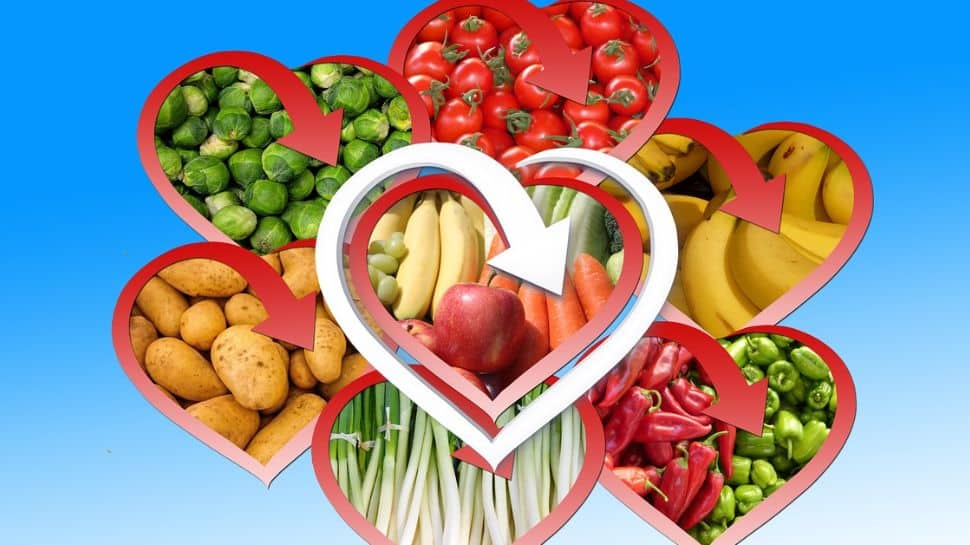[ad_1]
The immune system works to keep the body healthy and defend against disease-causing microorganisms. Since the immune system helps ward off disease, its importance cannot be overemphasized. And for a healthy immune system, the key is to have a healthy diet. Vaibhav Garg, clinical nutritionist and founder of PureCyze and co-founder of In You, says, “All cells, including immune cells, require a balanced and nutritious diet for overall health and function. Important nutrients for immune cell growth and function include vitamins C, vitamin D, zinc, selenium, iron and protein.”
Food sources that are limited in variety and low in nutrients can negatively impact a healthy immune system. “A high-fiber plant-rich diet, including fruits, vegetables, whole grains, and beans, supports the growth and maintenance of beneficial microbes. As a result, with the right mix of healthy foods and beverages recommended below, one can build a better immune system and enjoy Can. Healthy life,” adds Garg.
Foods that can boost immunity
Vaibhav Garg shares specific foods that one should have for a healthy immune system.
Vitamin C rich fruits and vegetables
Vitamin C, an essential nutrient, acts as an antioxidant and can boost the immune system even during times of physical stress. “To increase your intake of vitamin C, in addition to red and green peppers and broccoli, add citrus fruits such as grapefruit, oranges, limes, kiwi fruit and strawberries to your daily diet. These fruits and vegetables rich in vitamin C increase white blood cell production, fight against infection. Very important for fighting,” says Garg
Nuts are rich in vitamin E
Vitamin E, a powerful antioxidant, is essential for maintaining a healthy immune system, especially for older people. “Nuts rich in vitamin E include wheat germ oil, almonds, sunflower seeds, hazelnuts, and peanut butter. These nuts have antioxidant properties, protecting cells from damage caused by free radicals. Vitamin E plays an important role in immune cell regulation, influencing . The growth and differentiation of T-cells, a type of white blood cell that is central to the immune system’s ability to fight pathogens,” Garg said.
Adequate zinc intake
Zinc is an essential mineral that plays an important role in many body functions, including immune function, wound healing, DNA synthesis and cell division. “It’s found in a variety of foods, including legumes, nuts and seeds, whole grains, and dark chocolate. Nuts and seeds, such as pumpkin seeds, cashews, and almonds, contain good amounts of zinc. Whole grains like wheat, quinoa, rice, and oats are other important sources of zinc. ,” Garg said.
Carotenoids as immunity catalysts
Carotenoids are a class of over 600 naturally occurring pigments found in plants, algae and photosynthetic bacteria. Garg says, “These compounds are responsible for the red, yellow and orange colors in many fruits and vegetables. Carotenoids have antioxidant properties, which protect cells from damage by neutralizing free radicals. They help protect the integrity of immune cells, enabling them to function. . . more effectively.” Nutritionists add that the best edible sources of carotenoids include carrots, sweet potatoes, spinach, kale, tomatoes, bell peppers, pumpkins, apricots, mangoes and papayas.
Hydration benefits
Hydration is crucial for overall human health, as up to 60% of the body is made up of water. “Water plays an important role in digestion, regulating body temperature, lubricating joints, providing oxygen, and eliminating toxins and bacteria that can cause illness. Daily water needs vary by individual, but a general guideline is 2-3 liters for women. 3 for men. -4 litres,” says Garg. She adds that the best sources of hydration include water, coconut water, herbal teas, broths and soups. Fruits and vegetables with a high water content such as cucumbers, lettuce, celery, watermelon, strawberries, oranges and grapes also contribute significantly to hydration.
“A balanced diet combined with a healthy lifestyle is the best way to maintain a strong immune system. However, it is important to consult an expert nutritionist before following a strict diet regimen. Also, consulting a healthcare professional is recommended. Individual health Personalized advice on needs and conditions,” says Garg.
[ad_2]

